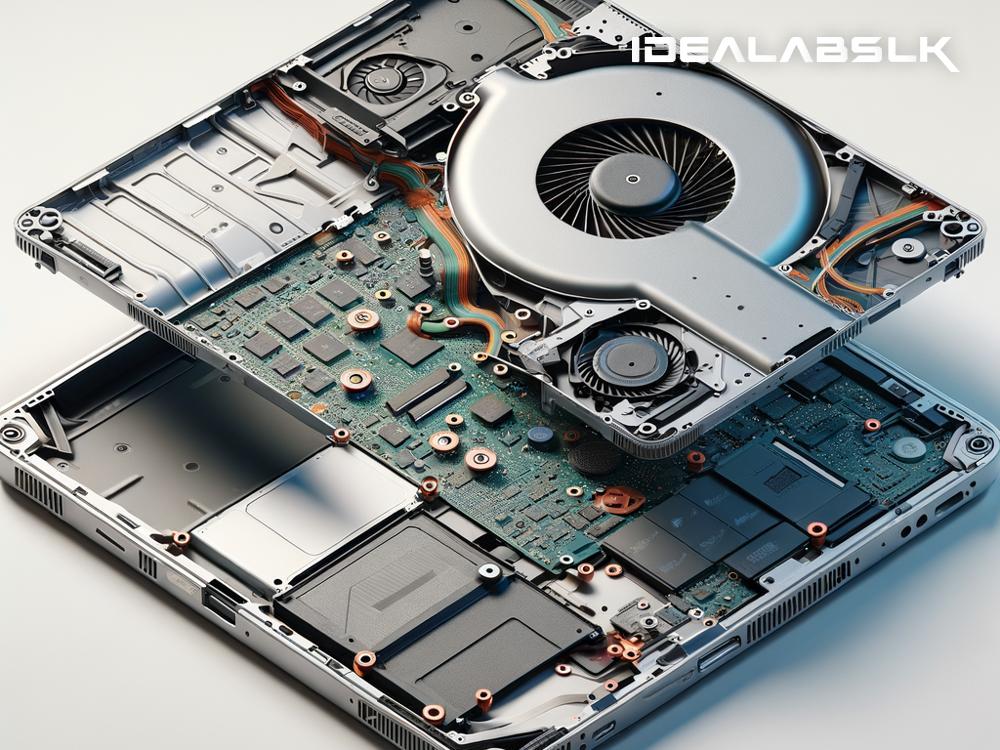Laptop Fan Running at Full Speed Constantly? Here’s How to Cool It Down
Is your laptop sounding like it's about to take off? If your laptop fan is running at full speed all the time, it's trying to tell you something important – it's too hot and working hard to cool down. However, you don't have to live with this annoying noise or worry about overheating damaging your computer. In this article, we will guide you through some simple steps to fix the issue and keep your laptop cool and quiet.
Understand Why It Happens
Before diving into solutions, it’s crucial to understand why your laptop fan is always on full blast. The main reason is usually related to your laptop's temperature. When the components inside your laptop, like the CPU and GPU, work hard, they generate heat. The fan's job is to blow this heat away to prevent overheating. If your laptop is under a heavy load, or if the cooling system isn’t working properly, the fan will run at full speed to try to keep things cool.
Check for Dust and Debris
The first and simplest thing you can do is check for dust and debris. Over time, dust can accumulate inside your laptop, particularly on the fan and heat sink. This buildup makes it harder for your laptop to cool down, causing the fan to work overtime. You can carefully open up your laptop and use canned air to blow away the dust. If you're not comfortable doing this yourself, you can take it to a professional.
Update Your Software
Outdated software or drivers can also cause your laptop to overheat. Manufacturers often release updates that optimize performance and cooling. Make sure your operating system and all drivers are up to date. Pay special attention to your BIOS updates, as these can directly impact how your laptop manages its internal temperature.
Adjust Your Settings
Adjusting your power settings can also make a huge difference. If your settings prioritize performance over energy saving, your laptop will work harder and generate more heat. Switching to a more balanced or energy-saving plan can help. You can find these settings in your laptop's control panel under Power Options.
Keep Background Processes to a Minimum
Having too many applications or browser tabs open can also cause your laptop to heat up. Try to keep the number of active processes to a minimum. You can check what's running in the background by opening your Task Manager (Ctrl + Alt + Delete) and closing any applications you don't need.
Use a Cooling Pad
Sometimes, your laptop just needs a little help staying cool. Investing in a cooling pad can provide additional airflow, helping to keep the temperature down. Cooling pads are especially useful if you use your laptop for gaming or other intensive tasks.
Put it on a Hard Surface
The surface you place your laptop on can also affect its temperature. Soft surfaces, like beds and laps, can block the airflow vents, causing the laptop to heat up quickly. Always try to place your laptop on a hard, flat surface to ensure proper ventilation.
Replace the Fan
If none of the above solutions works, the fan itself might be the problem. Over time, fans can wear out and lose efficiency. Replacing an old or faulty fan can dramatically improve cooling and reduce noise. This is a more technical solution, and if you're not comfortable doing it yourself, it's best to consult a professional.
Final Thoughts
A constantly running laptop fan can be a sign that your device is struggling to keep itself cool. By taking the steps outlined above, you can help reduce the load on your laptop, allowing it to run quieter and cooler. Remember, preventing overheating not only extends the life of your laptop but also improves its performance.
Listening to your laptop and responding to its needs can make your computing experience more enjoyable and less disruptive. Whether it’s cleaning out dust, updating your software, or managing your settings, these simple solutions can make a big difference. Your laptop (and your ears) will thank you!

